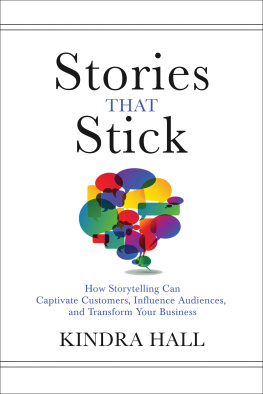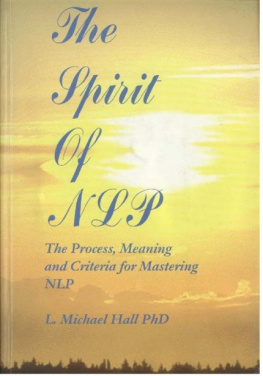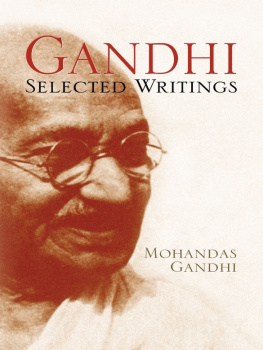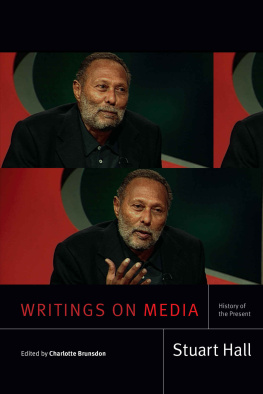Hall - Selected Writings on Race and Difference (Stuart Hall: Selected Writings)
Here you can read online Hall - Selected Writings on Race and Difference (Stuart Hall: Selected Writings) full text of the book (entire story) in english for free. Download pdf and epub, get meaning, cover and reviews about this ebook. year: 2021, publisher: Duke University Press, genre: Politics. Description of the work, (preface) as well as reviews are available. Best literature library LitArk.com created for fans of good reading and offers a wide selection of genres:
Romance novel
Science fiction
Adventure
Detective
Science
History
Home and family
Prose
Art
Politics
Computer
Non-fiction
Religion
Business
Children
Humor
Choose a favorite category and find really read worthwhile books. Enjoy immersion in the world of imagination, feel the emotions of the characters or learn something new for yourself, make an fascinating discovery.

Selected Writings on Race and Difference (Stuart Hall: Selected Writings): summary, description and annotation
We offer to read an annotation, description, summary or preface (depends on what the author of the book "Selected Writings on Race and Difference (Stuart Hall: Selected Writings)" wrote himself). If you haven't found the necessary information about the book — write in the comments, we will try to find it.
Hall: author's other books
Who wrote Selected Writings on Race and Difference (Stuart Hall: Selected Writings)? Find out the surname, the name of the author of the book and a list of all author's works by series.
Selected Writings on Race and Difference (Stuart Hall: Selected Writings) — read online for free the complete book (whole text) full work
Below is the text of the book, divided by pages. System saving the place of the last page read, allows you to conveniently read the book "Selected Writings on Race and Difference (Stuart Hall: Selected Writings)" online for free, without having to search again every time where you left off. Put a bookmark, and you can go to the page where you finished reading at any time.
Font size:
Interval:
Bookmark:
Stuart Hall: Selected Writings
A series edited by Catherine Hall and Bill Schwarz
SELECTED WRITINGS ON RACE AND DIFFERENCE
Edited byPaul GilroyRuth Wilson GilmoreStuart Hall
DUKE UNIVERSITY PRESS | DURHAM AND LONDON | 2021
All essaysStuart Hall Estate
All other material2021, Duke University Press
Printed in the United States of America on acid-free paper
Designed by Amy Ruth Buchanan
Typeset in Minion Pro by Westchester Publishing Services
Library of Congress Cataloging-in-Publication Data
Names: Hall, Stuart, 19322014, author. | Gilroy, Paul, [date] editor. | Gilmore, Ruth Wilson, [date] editor. | Hall, Stuart, 19322014. Works. Selections. 2016.
Title: Selected writings on race and difference / Stuart Hall ; edited by Paul Gilroy and Ruth Wilson Gilmore.
Description: Durham : Duke University Press, 2021. | Series: Stuart hall: selected writings | Includes index.
Identifiers:LCCN2020021829 (print)
LCCN2020021830 (ebook)
ISBN9781478010524 (hardcover)
ISBN9781478011668 (paperback)
ISBN9781478021223 (ebook)
Subjects:LCSH: Hall, Stuart, 19322014Political and social views. | Race. | Multiculturalism.
Classification:1523.355 2021 (print) |LCC HT1523 (ebook) |305.8
record available athttps://lccn.loc.gov/2020021829
ebook record available athttps://lccn.loc.gov/2020021830
Cover art: Photo of Stuart Hall by Eamonn McCabe / Popperfoto via Getty Images
- Paul Gilroy
I should like to thank a few people. More than thirty years ago, Stuart Hall shared many hours with me in caf s and his kitchen, while we talked at great length about what a book containing some of the pieces in this volume might look like. Two doctoral studentsHilary Wilson and Patrick DeDauwprovided excellent research and editorial assistance. Paul Gilroy invited me to collaborate on this project; I am grateful above all for his friendship. And thank you, Craig Gilmore, for everything else.
Ruth Wilson Gilmore
The biography of Stuart Hall is well known. It need not be rehearsed again here. His valuable writings have circulated around the world over a very long period of time, drawing responses from all directions and disciplines. The work has been reexamined in detail since his death by readers eager to learn from him and to absorb his many insights into the complexities of our present crisis. Yet I have occasionally overheard very sophisticated academics amusing each other with stories of their surprise at finding out Stuart Hall was a black man who had been born in Jamaica. Those pretended epiphanies unsettled me. It would be unwise to overinterpret casual comments of that sort, but discovering Halls Caribbean origins or migrant identity could be a shock only in a world where the mission of black intellectuals remains impossible, where being a black intellectual is unimaginable: a freakish possibility. Not only were those silly, shameless remarks premised on an extraordinary ignorance of the breadth of Halls concerns, commitments, and interests; they were also symptoms of a more widespread and telling failure to understand his political formation and trajectory.
This anthology is intended to encourage an entirely different approach. It begins from the provocative possibility that reckoning with the place of race and racism in Halls thought is indispensable for coming to terms with the meaning and the politics of his intellectual work as a whole. Since his passing, the resurgence of authoritarian and ultranationalist populisms, to which racism remains integral, confirms that the dynamic, potent effect of appeals to race, and the mobilization of racist discourses, needs to be better understood. Race is, as Hall memorably puts it, a floating signifier. It is also the highly charged matter of political ontology, located at the epicenter of our volatile environment bounded by nationalism and civilizationism.
The question of how analysis of racial formations might be lodged within the larger architecture of Halls perspectives on critical and cultural theory has acquired greater importance as his intellectual legacies have congealed. Clarification of the difficult conceptual and interpretative issues raised by racism and the politics of race promises more than just a better grasp of the course of Halls own thought and the critiques of liberal piety on racial matters that he delivered so inspiringly and energetically from the Left. It can illuminate his shifting relationship with the spectrum of socialist politics, with the New Left, Marxism, and feminism, as well as the international Black Power movement and the ongoing processes of decolonization that were unfolding in Africa, the Caribbean, and elsewhere. These pieces can be read first for the way that they reveal him acquiring a sense of the historical and epistemological significance of racism and race, and then for his eloquent attempts to persuade his readers of their signal political importance.
That way of proceeding affirms the wisdom in not approaching race as a separate, freestanding topic but focusing instead on the racism that animates and mobilizes races dynamically, and almost always violently. The problems that converge under those vexed headings can then be used to assemble an apparatus for thinking critically about a number of interrelated issues: culture, power, democracy, and the partial, abbreviated forms of justice and freedom that race-friendly capitalism allows. For Hall, analyzing racism and race in that way helps to identify the seams that separate critical knowledge from traditional knowledge. It can foster an expansive politics of intellectual work, inside and outside universities. Racism is not another layer of misery to be logged and added to the dismal effects of other social processes. It has a constitutive power. It shapes and determines economic and political relations. We can learn to look at history, culture, economic and social relations through the frame it affords us.
Hall discovers and then repeats his enthusiasm for the idea that race has provided a prism through which (British) people are called upon to live through to understand, and then to deal with crisis conditions.
As far as British history is concerned, these texts help to trace the evolution of Halls concern with racism and the effects of racialized inequality from the era of Suez and the Campaign for Nuclear Disarmament, through Enoch Powells cataclysmic Rivers of Blood and beyond to the righteous riots of the 1980s, into the artistic bloom of Britains Black Arts movement during the 1990s, the multiculture debates of the Tony Blair years and the crisis of neoliberal culture and society that followed. If that provincial genealogy supplies an immediate context for Halls serial commentaries and critiques, it should also be clear that his thinking evolved in a transnational, diasporic conversation with the work of other black writers drawn from various languages, locations, and generations. Caribbean travelers, in but not of Europe, like C. L. R. James, Frantz Fanon, George Lamming, Kamau Brathwaite, Sylvia Wynter, Andrew Salkey, Marion OCallaghan, and John LaRose, are only the most obvious figures whose journeys into, through, and beyond European thought in general and Marxism in particular might now help to illuminate and explain Halls own path. Their achievements, creative and radical, supply constant points of reference in the dialogical motion of his voice as it drifts in and out of its teacherly register.
Font size:
Interval:
Bookmark:
Similar books «Selected Writings on Race and Difference (Stuart Hall: Selected Writings)»
Look at similar books to Selected Writings on Race and Difference (Stuart Hall: Selected Writings). We have selected literature similar in name and meaning in the hope of providing readers with more options to find new, interesting, not yet read works.
Discussion, reviews of the book Selected Writings on Race and Difference (Stuart Hall: Selected Writings) and just readers' own opinions. Leave your comments, write what you think about the work, its meaning or the main characters. Specify what exactly you liked and what you didn't like, and why you think so.
















